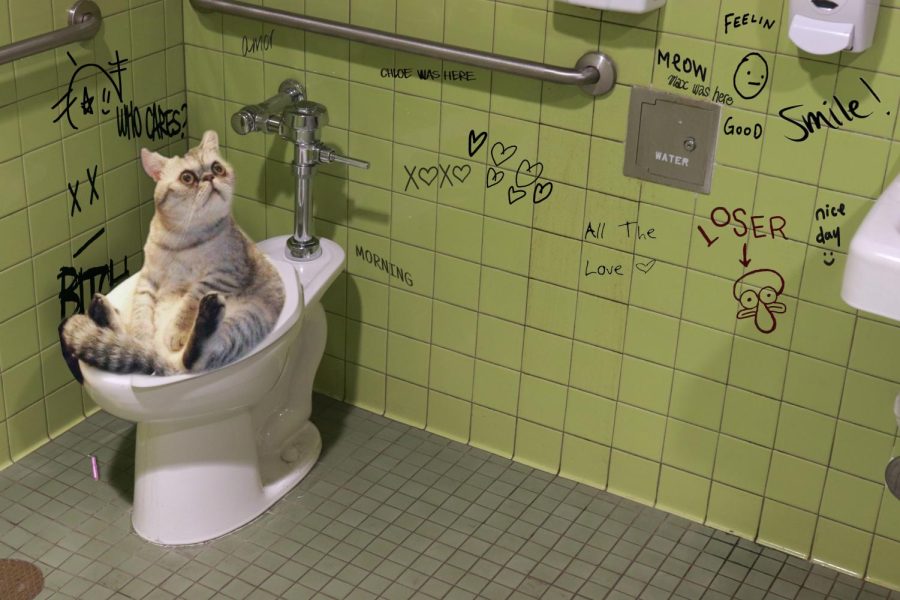Prevent Clogs and Damage: Don't Flush Cat Poop Down Your Toilet - Expert Recommendations
Prevent Clogs and Damage: Don't Flush Cat Poop Down Your Toilet - Expert Recommendations
Blog Article
On this page in the next paragraph you can locate lots of incredibly good answers relating to Don’t flush cat feces down the toilet.

Intro
As feline owners, it's essential to be mindful of how we dispose of our feline buddies' waste. While it might seem hassle-free to flush cat poop down the toilet, this technique can have harmful consequences for both the atmosphere and human wellness.
Ecological Impact
Flushing feline poop introduces damaging microorganisms and parasites right into the supply of water, presenting a considerable risk to marine ecological communities. These impurities can negatively influence marine life and concession water top quality.
Health Risks
Along with environmental issues, purging cat waste can also posture wellness threats to human beings. Pet cat feces might contain Toxoplasma gondii, a parasite that can cause toxoplasmosis-- a potentially serious ailment, especially for expectant ladies and people with weakened body immune systems.
Alternatives to Flushing
Fortunately, there are safer and more responsible ways to throw away pet cat poop. Take into consideration the complying with alternatives:
1. Scoop and Dispose in Trash
The most usual approach of getting rid of cat poop is to scoop it right into a naturally degradable bag and throw it in the garbage. Make sure to utilize a specialized clutter scoop and dispose of the waste immediately.
2. Usage Biodegradable Litter
Select naturally degradable cat trash made from products such as corn or wheat. These trashes are environmentally friendly and can be securely gotten rid of in the garbage.
3. Bury in the Yard
If you have a yard, consider hiding pet cat waste in a marked area away from vegetable gardens and water sources. Be sure to dig deep sufficient to prevent contamination of groundwater.
4. Mount a Pet Waste Disposal System
Invest in a pet waste disposal system particularly developed for pet cat waste. These systems make use of enzymes to break down the waste, minimizing odor and ecological impact.
Conclusion
Liable family pet possession expands beyond supplying food and sanctuary-- it additionally entails appropriate waste administration. By avoiding flushing pet cat poop down the commode and choosing alternative disposal approaches, we can decrease our ecological footprint and protect human health and wellness.
Why You Should Never Flush Cat Poop Down the Toilet
A rose by any other name might smell as sweet, but not all poop is created equal. Toilets, and our sewage systems, are designed for human excrement, not animal waste. It might seem like it couldn’t hurt to toss cat feces into the loo, but it’s not a good idea to flush cat poop in the toilet.
First and foremost, assuming your cat uses a litter box, any waste is going to have litter on it. And even the smallest amount of litter can wreak havoc on plumbing.
Over time, small amounts build up, filling up your septic system. Most litter sold today is clumping; it is made from a type of clay that hardens when it gets wet. Ever tried to scrape old clumps from the bottom of a litter box? You know just how cement-hard it can get!
Now imagine just a small clump of that stuck in your pipes. A simple de-clogger like Drano isn’t going to cut it. And that means it’s going to cost you big time to fix it.
Parasitic Contamination
Believe it or not, your healthy kitty may be harboring a nasty parasite. Only cats excrete Toxoplasma in their feces. Yet it rarely causes serious health issues in the cats that are infected. Most people will be fine too if infected. Only pregnant women and people with compromised immune systems are at risk. (If you’ve ever heard how women who are expecting are excused from litter cleaning duty, Toxoplasma is why.)
But other animals may have a problem if infected with the parasite. And human water treatment systems aren’t designed to handle it. As a result, the systems don’t remove the parasite before discharging wastewater into local waterways. Fish, shellfish, and other marine life — otters in particular — are susceptible to toxoplasma. If exposed, most will end up with brain damage and many will die.
Depending on the species of fish, they may end up on someone’s fish hook and, ultimately on someone’s dinner plate. If that someone has a chronic illness, they’re at risk.
Skip the Toilet Training
We know there are folks out there who like to toilet train their cats. And we give them props, it takes a lot of work. But thanks to the toxoplasma, it’s not a good idea.

Do you really like reading about Don’t flush cat feces down the toilet? Post a review further down. We would be delighted to know your reactions about this blog post. We hope to see you back again soon. In case you enjoyed reading our blog posting kindly remember to share it. We cherish reading our article about Don’t flush cat feces down the toilet.
Get Started Report this page